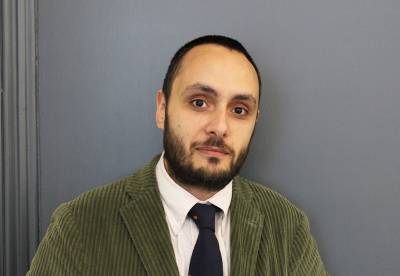
Ideology Critique Without Morality: A Radical Realist Approach
The Freedom Center and Spring 2022 FC Talks series presents Enzo Rossi (University of Amsterdam).
Enzo Rossi is a tenured universitair docent at the University of Amsterdam, the co-editor of the European Journal of Political Theory, and the principal investigator of the Dutch National Science Organisation Vidi project ‘Legitimacy Beyond Consent’ (2016-2021). His PhD is in philosophy, from the University of St Andrews.
His main current project is a realist critical theory of legitimacy. This stems from the intersection of a number of interests: (i) methodological issues in political theory, e.g. realism vs moralism and, relatedly but separately, ideal vs non-ideal theory; (ii) the historical development of liberal ideology; (iii) the normative status of political authority; and (iv) the accommodation of diversity. More generally, he is concerned with the relationship between the descriptive and the normative study of society. His publications and working papers can be downloaded here.
Abstract
What is the point of ideology critique? Prominent Anglo-American philosophers recently proposed novel arguments for the view that ideology critique is moral critique, and ideologies are flawed insofar as they contribute to injustice or oppression. We criticize that view and make the case for an alternative and more empirically-oriented approach, grounded in epistemic rather than moral commitments. We make two related claims: (i) ideology critique can debunk beliefs and practices by uncovering how, empirically, they are produced by self-justifying power, and (ii) the self-justification of power should be understood as an epistemic rather than moral flaw. Drawing on the recent realist revival in political theory, we argue that this genealogical approach has more radical potential, despite being more parsimonious than morality-based approaches. We demonstrate the relative advantages of our view by discussing the results of empirical studies on the contemporary phenomenon of neopatriarchy in the Middle East and North Africa.
Event Contacts
Kaveh Pourvand
kpourvand@email.arizona.edu

